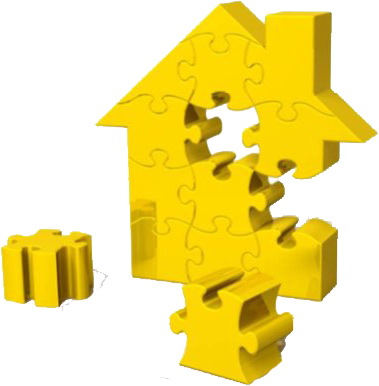Whether you’re a homeowner, contractor, or landlord, a good Energy Performance Certificate (EPC) rating is essential for selling, renting or building a property. The UK government is taking proactive steps to reach its climate goals and reduce the country’s overall carbon emissions, and property owners need to ensure their property meets requirements.
Energy Performance Certificates are used to inform current or potential residents how energy efficient a property is. It can also serve as a benchmark for how to improve a property’s energy performance. The aim is to have a high rating to show that your building retains heat well, remains at stable temperatures and is affordable to run.
As solar panels and alternative energy sources are becoming more and more popular, we thought it was appropriate to discuss whether and how solar panels improve your EPC rating.
Are you wondering whether solar panels improve EPC ratings? Let’s dive in…
What Are Solar Panels?
Solar panels are devices made of photovoltaic (PV) cells that convert sunlight into electricity and heat. These PV cells are generally made of semiconducting material like silicon, and the electrical charge produced is obtained as direct current (DC). This current is then converted into alternating current (AC), which can be used in your home or stored in a battery.
Despite popular misconception, solar panels can produce electricity throughout the year and even in cloudy weather. But, as expected, the energy generated on a sunny summer day will always be more than obtained on an overcast day.
Solar energy has become increasingly popular in the UK. As of June 2024, 1.4 million homes are using solar panels, with almost 69% of people saying they are more likely to purchase a home offering solar panels.
Solar panel installation has increased due to the following reasons:
- Reduced energy bills
- Minimising carbon footprint
- Easy maintenance and durability
- A higher EPC rating
Common Types of Solar Power Systems
When considering solar panels and EPC ratings, bear in mind that you can harness solar power in two ways:
Solar Thermal: Sunlight is used to heat water, for instance, in a hot water pump or boiler. The heat generated can later be converted to electricity. These systems also take up less space than PV panels and are more efficient in collecting sunlight.
Solar PV: Sunlight is converted into electricity and used to power appliances like fridges, dishwashers, etc. Solar PV can last for almost 25-30 years and can provide for almost 60% of all household energy consumption.
Do Solar Panels Improve EPC Rating?
The short answer is yes, solar panels can significantly improve your EPC rating. This is possible because switching to solar power reduces your reliance on the energy derived from the electricity grid. This renewable energy source then powers your home, charging your gadgets and powering lights.
An average British household can move up from D to C on the EPC rating scale using solar panels. However, this does depend on the number of panels installed and other energy efficiency measures adopted.
If you install a 4kW solar PV system, you can earn up to 15 solar energy EPC points. Not only do solar panels improve EPC ratings, but they also increase your property valuation. According to Energy Saving Trust, solar panels in the UK can cost about £7,000 for a 10-panel, 3.5kW system which. This can power a three-bedroom home anywhere in the UK and save up to £600 annually in electricity bills. To promote clean energy, the government is currently not levying any VAT on solar panels or batteries.
If you’re a property owner trying to rent or sell your property, having a solar panel installed will immediately add 20-25% to your rent or property valuation.
Renewable and green energy also helps you contribute towards lowering the dependency on fossil fuels, which is always desirable. You can use solar energy in the following ways in your home:
- To store the excess electricity produced in batteries so that they can be used to power your home on a rainy day.
- To use solar-powered heat pumps. This low-carbon heating system is good for the environment and also tends to reduce bills.
- To power electric vehicles (EVs).
- To reduce your reliance on electrical grids.
It’s also worth noting that if you’re generating more solar electricity than you’re consuming and don’t have a battery to store the energy, the excess energy is sent back to the electric grid through the Smart Export Guarantee, and you’ll be making 12p for every unit that you export.
Check Whether Your Property Is Ready for Solar
Installing solar panels to improve your EPC rating is highly recommended but you must first ensure that your home is prepared for solar PV installation. Take a look at your roof and make sure there is adequate lighting. If you’re amongst other taller buildings, or surrounded by trees, then you may want to reconsider your options.
You must also check the condition of your roof. Solar PVs are heavy and last for decades, so a strong roof is required to sustain the panels and prevent any accidents or breakages. Before installation, you will also need to clear the roof and provide access to the fuse box.
Following Your Solar Panels Installation, Contact Gio For A New & Updated EPC Rating
Using solar energy to improve EPC ratings has struck a chord among property owners in the UK. As more people become aware of the pitfalls associated with non-renewable energy, they’re looking for greener alternatives.
On top of that, the financial benefits of adopting solar energy can’t be ignored. If you want to explore the question ‘Do solar panels improve EPC ratings?’ further, contact us at Gio Property Solutions for more insight.
We can also assist with other services, such as air tightness tests and EPC renewals for commercial and residential properties.
Contact us today to learn more about our services.


